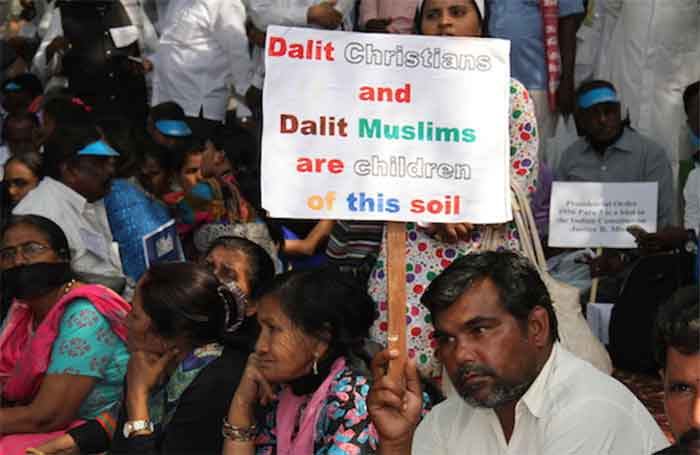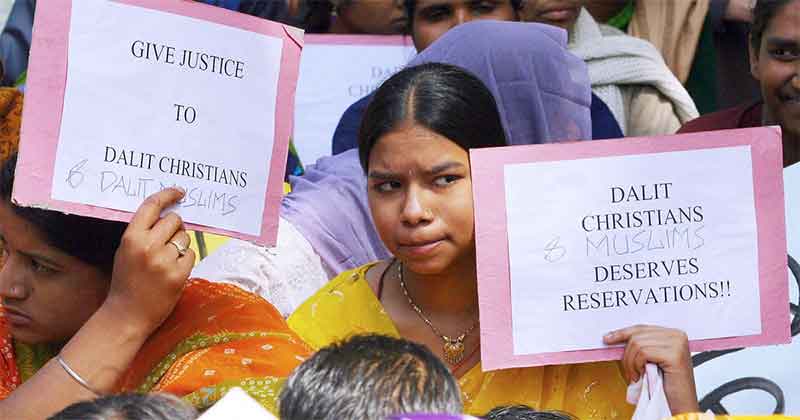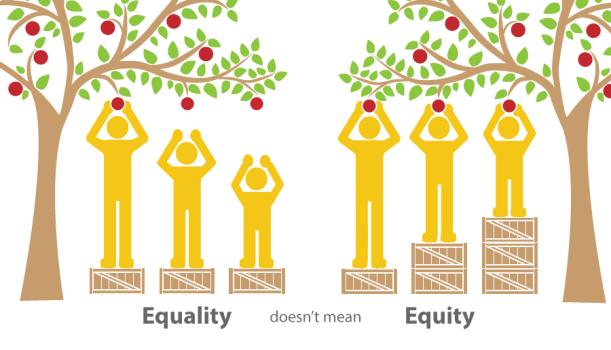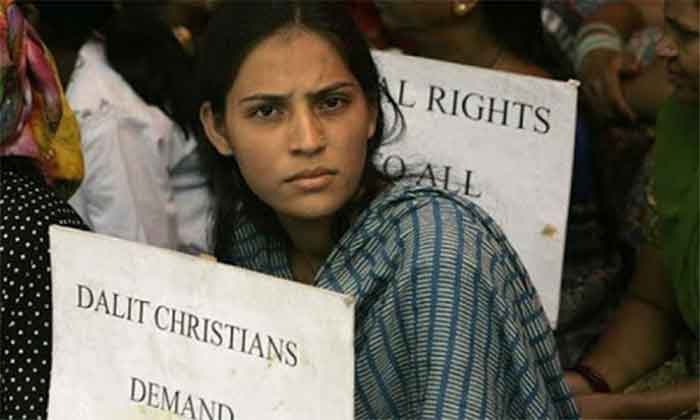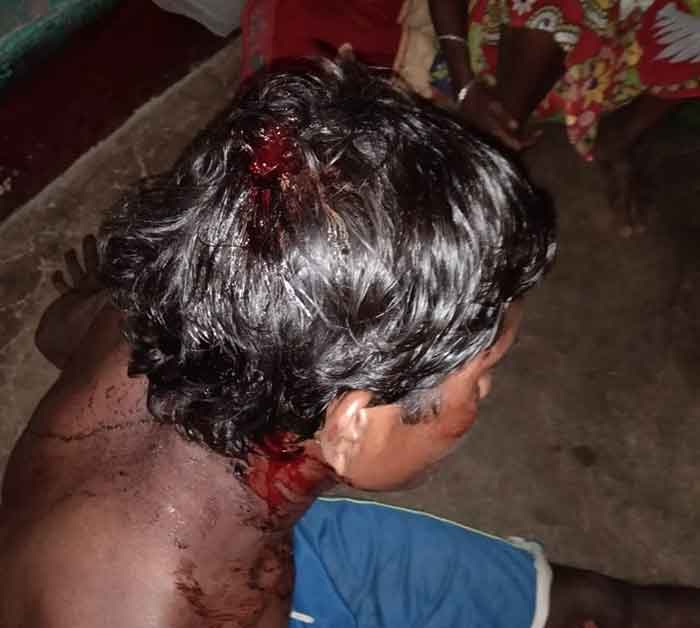
In India total Christian population is approximately 27.8 million (as per the Church source); among them approximately 20 million are following Roman Catholic denomination. As per the attached testimony of the Holy See/ Vatican’s Web Site 80 percent, approximately 16 million Christians are from the Scheduled Castes communities throughout India.
Holy See/ Vatican/ (Pope), it governs individuals’ divine right to Catholic Christians in India to exercise the Catholic religious denomination, financial and property matters, confessional teaching, the civil effects of marriages under canonical law, state subsidies to the Church, and the Pontiff’s right to appoint Bishops in India.
View of the people regarding the Caste discrimination in the preliminary Bishopric candidate’s selection by the non- Dalit Bishops with empirical data.
In South India, particularly in Tamil Nadu, by revealing the following fact as reason, the Dalit Christians are agitating to remove the untouchability/ Caste discrimination based preliminary candidates’ selection for Bishopric/ Bishops’ position, the entire Bishops’ candidates selection is kept as secret and thus the recommendation is sent to Holy See/ Vatican through the Holy See/ Vatican Ambassador who is functioning at New Delhi. They are feeling that there is no restriction in the following Canon law of the Vatican/ Holy See to select the qualified Christians of Scheduled Castes Origin Community/ Dalit Christian community priests/ presbyters as episcopal Bishopric preliminary selection candidates for sending the names to the Vatican for the Bishops’ appointment. Dalit Christians are complaining that most of the Bishops do not select the above said community candidates with Caste minded untouchability practice / prejudice purposefully. That is why throughout India out of 200 Bishops (out of the total 174 dioceses/ ecclesiastical jurisdiction) only 12 Bishops are from the Christians of Scheduled Castes Origin community; at present in Tamil Nadu & Puducherry out of 18 Latin Rite Bishops only one Bishop is from the Christians of Scheduled Castes Origin community; for the past 17 consecutive years in Tamil Nadu & Puducherry, only non- Dalit/ dominant Caste communities’ Priests names were selected and recommended by the non- Dalit Bishops to the Holy See/ Vatican and the non- Dalit Bishops only had been appointed by the Vatican/ Holy See/ Pope as Bishops in Tamil Nadu & Puducherry. At last in the year 2006, one Dalit community Bishop was appointed, before that one Dalit community Bishop was appointed in the year 2002. In Tamil Nadu except, Dharmapuri, Chennai, Chengalpattu and Vellore, in other 14 Dioceses, no one from the Dalit Christian community was selected as Bishop. Though the Kumbakkonam Diocese was started in the year 1899, Thanjavur Diocese was started in the year 1952 and the Tiruchirapalli Diocese was started in the year 1886, though 70 percent Church members of these Dioceses are from the Dalit communities and though many spiritually, educationally and morally excellent qualified Dalit Catholic Priests are there in these Dioceses, no Dalit Priest was appointed as Bishop. In the same Tamil Nadu and Puducherry ecclesiastical jurisdiction, for the past two years continuously for Salem, Sivagangai, Kumbakkonam, Palayamkottai, Kulithurai and Thoothukudi Dioceses consecutively only non- Dalit community Bishops were nominated and selected as Bishops. In Kerala, Maharashtra and Delhi- Agra ecclesiastical jurisdiction, there is no Dalit community Bishop is functioning. In 8 regions out of 12 regions of the Indian Catholic Church’s Latin Rite, no one from the Dalit community is functioning as Bishop. Whereas the following policy emphasises the need for selecting Dalit community Bishops without any prejudice and the caste discriminatory mind-set.
Policy of Dalit Empowerment in the Catholic Church in India, An Ethical Imperative to Build Inclusive Communities, published by the Catholic Bishops’ Conference of India, New Delhi on 8th December 2016, which says as follows:
“II. Dalit Realities and the Status of Dalit Christians
23. Dalit Christians are the majority in the Catholic Church.13 But their participation in the level of leadership in the diocesan administration as well as in religious orders is minimum and at the higher levels it is almost nil.
D. That there be Participative and Inclusive Administration and Transparency in Governance:
b. As a sign of affirmative action, just representation is to be promoted and ensured in different leadership and executive roles in the Church. Such affirmative actions are to be implemented in various decision-making bodies of religious orders as well.
24. Dalits are about 12 million out of 19 million members of the Catholic Church. However, among the Major Superiors, priests and religious they are not proportionately represented. It is pertinent to note that the first bishop from Dalit community was appointed in 1977. At present, there are 12 bishops from Dalit community.14 In recent years, there is an increase in vocations from Dalit communities.”
Explanation for the above said Notes No. 14:
“Out of about 180 bishops in India only 12 (6.6 per cent) are from Dalit community: two in Tamil Nadu, five in Andhra Pradesh and Telangana, one in Gujarat, three in Odisha, and one in Maharashtra. Among the Major Superiors 12 out of 822 are from Dalit community. Priests from Dalit community are about 1,130 (4.2 per cent) out of 27,000 and religious are about 4,500 (4.5 per cent) out of 100,000.”
There are three Rites in India, Latin Rite and two autonomous Churches, Syro- Malabar and Syro- Malankara. Can these Syrian Churches say that there are no Dalits in their Churches? If there are Dalits in their Rites, why there has not been a single Dalit Bishop in these two Churches which is spread throughout the world. It should be noted that the Syro-Malabar Church claims to be existing from the time of Apostle St. Thomas.
Though many thousands of qualified candidates are there from Christians of Scheduled Castes Origin community throughout India and specifically from Tamil Nadu & Puducherry States, the whole Indian Roman Catholic Church Authorities/ Tamil Nadu Catholic Bishops’ Council did not take any action in Bishopric preliminary candidates selection to curb the practice of caste and untouchability mind-set practice (particularly in Tamil Nadu & Puducherry States) as per their following standing committee’s decision of the Bishops and the International Church authorities’ mandatory recommendations.
Substantiating the complaint based on the authentic statement and declaration.
The Supreme Court of India had denoted, in K.P. Manu -vs- Chairman, Scrutiny Committee for Verification of Community Certificate, (2015) 4 SCC 1.
“25. Archbishop George Zur, Apostolic Pro-Nuncio to India in his inaugural address to the Catholic Bishops Conference of India, (CBCI) in the meeting held in Pune during December 1991, made the following observations:
“…There are no Dalits among 13 Catholic bishops of Tamil Nadu or among the Vicars-general and rectors of seminaries and directors of social assistance centres.”
Special Envoy of the Holy Father Pope Benedict XVI, Cardinal Fernando Filoni, and the Prefect of the Congregation for the Evangelization of Peoples had emphasized the necessity for bringing more bishops from the Dalit Christian Community, during the Pastoral visit to India, 9-16 February 2013, meeting with the bishops – CCBI, Sunday, 10 February 2013 says:
“A missionary-minded Bishop pays pastoral attention to all the categories of people present in his diocese, without regard for caste or ethnicity but focused upon the love of God and the spread of the Gospel. No ethnic group, low-caste group, or minority group, must feel side-lined, marginalized or left out from the initiatives or pastoral works in your Diocese – I am thinking in admission to the Seminaries, in promoting to important parishes and curial duties, and episcopal candidates.”
The Roman Catholic Church’s Canon Law and the Pope’s supportive statement for not practicing the caste/ untouchability linked discrimination.
Canon law Section 208 stresses the need of having equality in the Church and the Canon law section 222 (2) emphasises about the need of giving social justice to the marginalized communities.
Canon law section 377, sub- section 2 emphasises as follows:
“Without prejudice to the right of each bishop individually to make known to the Apostolic See the names of presbyters whom he considers worthy of and suited to the episcopal function.”
As per the Canon law sections 478 sub-section 2, section 492 sub-section 3 and section 1448 sub-sections 1, 2, based on nepotism and caste affiliation, the blood relatives and others should not be selected as candidates for bishopric.
“Inequality is the root of social evil,” says present Pope Francis.
Address of Pope John Paul II, to the bishops of India, on their “Ad Limina” visit, Date, Monday, 17 November 2003.
“All the time, you must continue to make certain that special attention is given to those belonging to the lower castes, especially the Dalits. They should never be segregated from other members of society. Any semblance of a caste-based prejudice in relations between Christians is a countersign to authentic human solidarity,”
Holy See/ Vatican/ Pope should mandatorily respect the bi-lateral agreement with India, it should abide to the Indian constitutional mandate like non- discrimination because the Indian law will prevail the Canon law.
The Holy See/ Vatican should follow the International Convention on the Elimination of All Forms of Racial Discrimination (1966), the Holy See/ Vatican should not have/ allow any caste based discriminatory candidates’ selection for the Bishopric positions in India. Also, the Indian Roman Catholic Church authorities and the Tamil Nadu Catholic Bishops should not allow such caste discrimination-based candidates’ selection for preliminary Bishopric selection by discriminating and purposefully avoiding the Christians of SC Origin community’s candidates, this could pave and share the crime on the part of the Holy See/ Vatican as per the following convention. As per one of those multilateral conventions, the Vienna Convention on Diplomatic Relations, 1963 (VCDR), makes two special references to the Holy See’s legation practice in Articles 14 and 16. Article 14(1) VCDR equates apostolic nuncios (the Holy See’s diplomatic representatives) with ambassadors, i.e., the first class of heads of mission. Article 16, which deals with the precedence of diplomatic representatives, provides in paragraph 3 that it “is without prejudice to any practice accepted by the receiving State (India) regarding the precedence of the representative of the Holy See.” Thereby, Holy See/ Vatican (Pope) should affirm the continued application of existing customary (law) practices between the Holy See and the receiving State (India) without allowing any castes discriminatory practice based on Indian law and Indian Constitution.
Other forms of untouchability practice.
Against the following mandate of the Indian Catholic Church, many centuries, as per the lower and higher caste, as discriminatory practice, double cemeteries are maintained by the Church, double dead body carriers/ Hearse Vehicles’ allotment are done, in some places, Church do not allow the Dalit people to participate/ function in the Parish Church Council as members, in some places, Church do not allow the Dalit youths to serve along with the dominant caste youths in the prayer’s alter service and equally participating in the choir/ singing songs during prayer timing, equality is not given to Christians of SC Origin people in Church festivals like Car festivals and the Castes discriminatory rituals are allowed by the Church authorities in some of the rural areas.
A testimony to prove the economic exploitation faced by Catholic Dalit Christians in India:
MISSIO, Pontifical Mission Society, Postfach 10 12 48, D-52012 Aachen, Germany. (Holy See/ Pope’s own Organisation).
Human Rights Office published Report, in the year 2010, prepared by
The Tamil Nadu Dalit Intellectual Forum which is an association of Catholic priests and lay people from the Indian State of Tamil Nadu, India.
Headlines: On the Contradiction of being Dalit Christians
Topic: 4.6. Sharing the lot of the marginalized
“Even when our Church leaders go abroad, as we hear from the funding agencies and Church organizations, they speak only about the poverty of the Dalits but deny the existence of the caste system and caste discrimination in Tamil Nadu. Even the funds raised abroad on behalf of the Dalits have not been spent for their upliftment. The 2005/06 Foreign Contribution Regulation accounts indicate that the Church spent only 0.12% and 0.32% for Scheduled Caste and Scheduled Tribe welfare respectively (cf. The Hindustan Times, 4 November 2006). Fortunately, Jesus did not belong to the caste system here. Otherwise only his caste people would have followed him with conviction. Jesus, who not only broke himself for the unity of his Church, remains broken into pieces among the caste groups in Tamil Nadu.” Page No: 54 & 55.
Policy of Dalit Empowerment in the Catholic Church in India, Catholic Bishops’ Conference of India, New Delhi, year 2016 says:
“…There is wider acceptance that the practice of untouchability and discrimination against Dalits exists in the Church and there is need to address these issues urgently…”
The Statement of the Catholic Bishops’ Conference of India’s standing committee meeting (Kottayam- Year 1988) says:
“…The discrimination based on caste that is rampant in the rest of society continues also among Christians. Most Christians of Scheduled Caste origin people are still deprived of economic opportunities, access to adequate educational facilities, leadership roles and participation in decision-making.”
Indian Law which condemns this Caste discrimination.
Article 17 prohibits untouchability “in any form” in order to abolish all practises based on notions of purity, and pollution. The exclusion of Christians of Scheduled Castes Origin Priests (particularly in Tamil Nadu and Puducherry) to be elevated as Bishops and discriminating the Christians of SC Origin community people in the Church structure is on the same footing as the exclusion of oppressed classes, this is against the following Constitutional mandate and Constitutional morality. The term “morality” used in Articles 25 and 26 refers to Indian Constitutional morality, and not an individualised or sectionalised sense of morality. It must be informed/ revealed that the Catholic Church authorities should be controlled and directed by Articles 14 (equality), 15, 15 (1) (non- discrimination), 17 (prohibition of any form of untouchability), 21 (fundamental right), 25 (1) (freedom of religion subjected to morality and the public order), 26 (manage religious affairs Subject to public order, morality and health) and 38 (secure a social order for the promotion of welfare of the people). It has been unveiled that this Church authorities, are “other authority” within the meaning of Article 12 (State includes the Government) to obey the above said law and resultantly fundamental rights including those guaranteed under Article 25(1)/ religious freedom are enforceable against the present Catholic Church authorities based on the Indian law and the Constitutional mandate.
As per the clause (a) & (b) of Section 3, Section 4, Section 7 & Section 7 (1) (c) of the Act No. 22 of 1955, Protection of Civil Rights Act, 1955 and the Indian Constitution Article 17, the above said discrimination is an offence.
The agitating entire Christians of SC Origin’/ Dalit Christians’/ Dalit Roman Catholic Christians’ final plea.
As per the Code of canons of Oriental Churches, 1990, Title 2 Churches Sui Iuris and Rites (of one’s own right), Cannon 28 (i) and (ii), Dalit Catholic Christians are already having the indigenous/separate Dalit liturgical, theological, spiritual, and disciplinary patrimony, culture, and circumstances of history of a distinct people, by which its own manner of living and the faith is manifested in each Church Sui Iuris. Since, the impoverished Catholic Christians of Scheduled Castes Origin (Dalit Catholics of India) could not able to see the emancipation and amelioration by throwing away the Castes discrimination and the Caste mind-set of some of the dominant Castes people in the Bishopric preliminary candidates selection with the help of the top level Church administration; so, the new Dalit Catholic rite ought to be formed/ established and stated/ announced forthwith by the Holy Father Pope/ Holy See/ Vatican as per their isolated cultural tradition of the Dalit Catholic Christians of India for liberating them from the bondage and the Castes mind-set linked slavery.
On behalf of the entire Christians of Scheduled Castes Origin (Dalit Christians) of India, since any citizen of India could set the Indian law and the Canon law into motion, to preserve and save the human dignity of the downtrodden mass, this Article is written in the individual capacity of the author and the author’s views are personal, it does not represent any of his position and his affiliated Organisations
Franklin Caesar Thomas is a practicing Advocate of the Supreme Court of India. He works for the cause of getting Scheduled castes status to Christians of SC origin from the year 1979 onwards. He is one of the co-founders of the National Council of Dalit Christians (NCDC)/ society/ a Nationwide movement.

